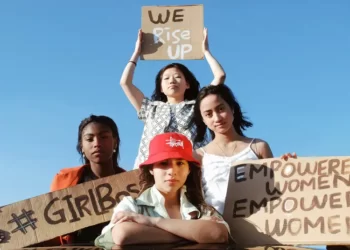Table of Contents
- Historical Context of Māori Marginalisation
- Mechanisms of Marginalisation
- Sociological Perspectives on Māori Marginalisation
- Contemporary Challenges and Resistance
- Towards Equity and Inclusion
- Conclusion
The Māori people, the indigenous Polynesian population of Aotearoa (New Zealand), have faced centuries of systemic marginalisation, resulting in widespread social, economic, and cultural inequities. This marginalisation stems from colonial policies, societal structures, and ongoing institutional biases. Understanding the mechanisms and consequences of this marginalisation offers critical insights into the ways systemic inequality operates and persists. This article explores the historical context, sociological implications, and current realities of Māori marginalisation, while proposing pathways toward an equitable future.
Historical Context of Māori Marginalisation
Pre-Colonial Society and Culture
Before colonisation, the Māori people lived in a highly organised society based on iwi (tribes), hapū (sub-tribes), and whānau (extended families). Their social structure, tikanga (customary practices), and te reo Māori (language) formed the foundation of their identity and governance. These structures fostered collective responsibility, social cohesion, and strong connections to whenua (land). The land was not only a source of sustenance but also a spiritual anchor that underpinned Māori cosmology and daily life.
Colonisation and Its Impact
The arrival of British settlers in the 19th century marked the beginning of significant disruptions to Māori society. The signing of the Treaty of Waitangi in 1840, often considered a pivotal moment, promised a partnership between the Crown and Māori. However, this agreement was systematically undermined. Land confiscations, warfare, and discriminatory policies stripped Māori of their resources, autonomy, and cultural heritage. The Crown’s failure to honour the treaty’s principles created deep-seated grievances that persist to this day.
The alienation from their land, a cornerstone of Māori identity and economy, had devastating consequences. By the late 19th century, most Māori land had been seized or sold under duress, leading to economic disenfranchisement and social dislocation. The loss of land not only stripped Māori of their economic base but also eroded their cultural and spiritual connection to the whenua.
Mechanisms of Marginalisation
Economic Disparities
Māori communities have long faced economic disadvantages. Historical land confiscations and the subsequent exclusion from economic opportunities entrenched poverty and inequality. Today, Māori disproportionately occupy lower-income brackets, experience higher unemployment rates, and have limited access to wealth-building opportunities such as homeownership. The intergenerational nature of these inequities perpetuates cycles of poverty and limited social mobility.
In addition, labour market discrimination and systemic biases in hiring practices exacerbate these economic disparities. Māori workers are overrepresented in low-wage, precarious employment sectors, further entrenching economic vulnerability.
Education Inequities
Education has been both a site of assimilation and marginalisation for Māori. Early colonial education policies aimed to suppress te reo Māori and assimilate Māori into European culture. These policies actively undermined the transmission of Māori knowledge systems and cultural practices. While recent efforts have sought to revitalise te reo Māori and incorporate bicultural approaches, Māori students still face systemic barriers, including higher rates of school disengagement and lower educational outcomes compared to their non-Māori peers.
Structural inequities in the education system, such as inadequate funding for schools serving predominantly Māori communities, perpetuate these disparities. Additionally, the lack of culturally responsive teaching practices and implicit biases among educators further hinder Māori students’ academic success.
Health Inequalities
Māori health outcomes lag significantly behind those of non-Māori. Factors such as limited access to healthcare, socio-economic deprivation, and systemic racism within the healthcare system contribute to higher rates of chronic illnesses, mental health issues, and lower life expectancy. For example, Māori are disproportionately affected by conditions such as diabetes, cardiovascular disease, and respiratory illnesses.
Cultural barriers within the healthcare system also play a significant role. Western biomedical models often fail to account for the holistic perspectives of Māori health, which encompass physical, mental, spiritual, and family wellbeing. This disconnect highlights the urgent need for culturally responsive healthcare practices that align with Māori worldviews.
Criminal Justice Disparities
The criminal justice system disproportionately impacts Māori. They are overrepresented in arrest, conviction, and incarceration statistics. Māori make up approximately 16% of New Zealand’s population but account for over 50% of the prison population. This overrepresentation reflects systemic biases, socio-economic inequities, and historical trauma that perpetuate cycles of disadvantage.
Institutional racism within the criminal justice system exacerbates these disparities. Māori are more likely to be subjected to police surveillance, face harsher sentencing, and encounter barriers to rehabilitation and reintegration. Addressing these disparities requires systemic reform and investment in alternative justice models that prioritise restorative practices.








